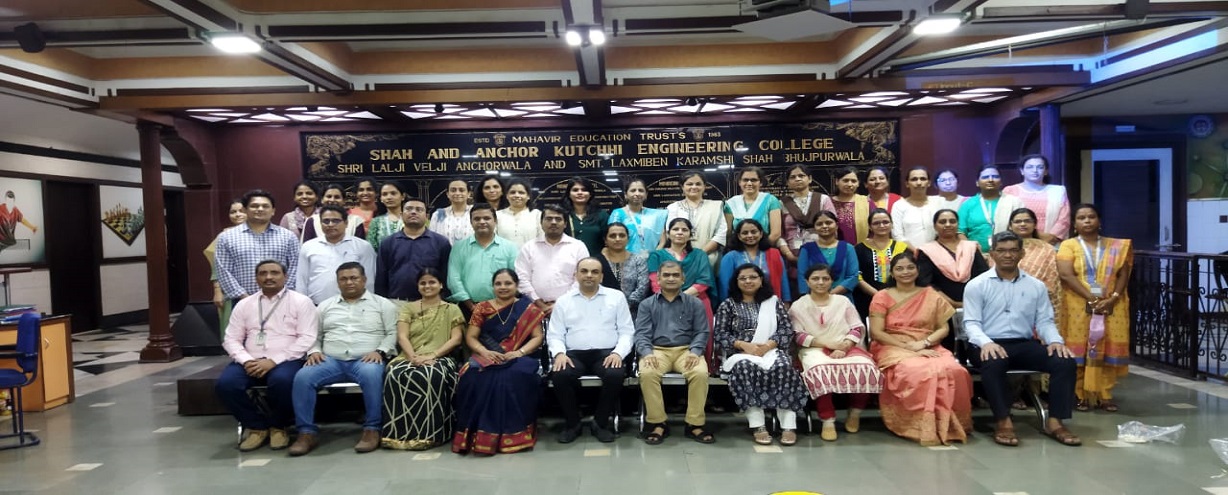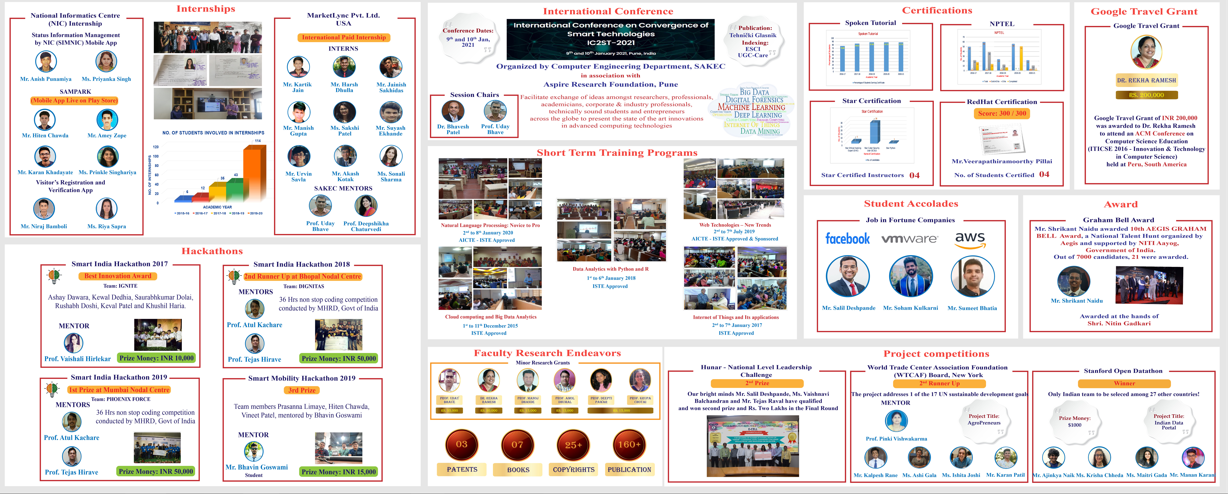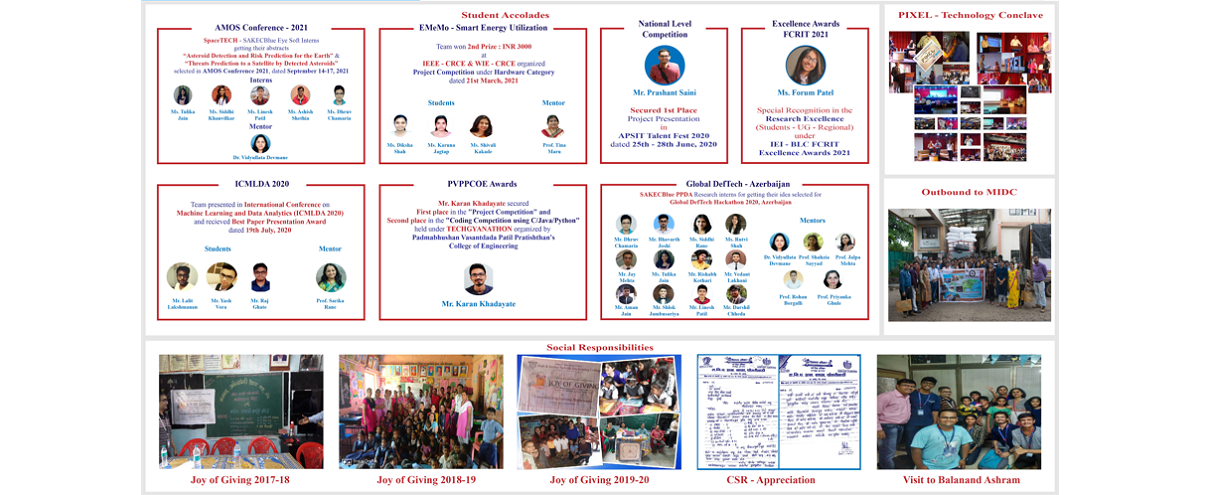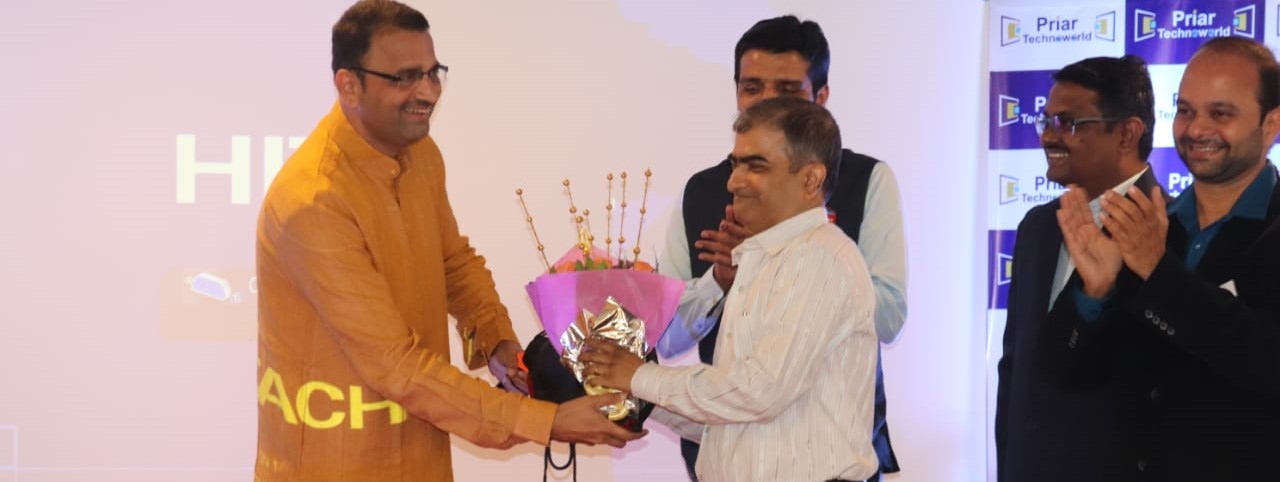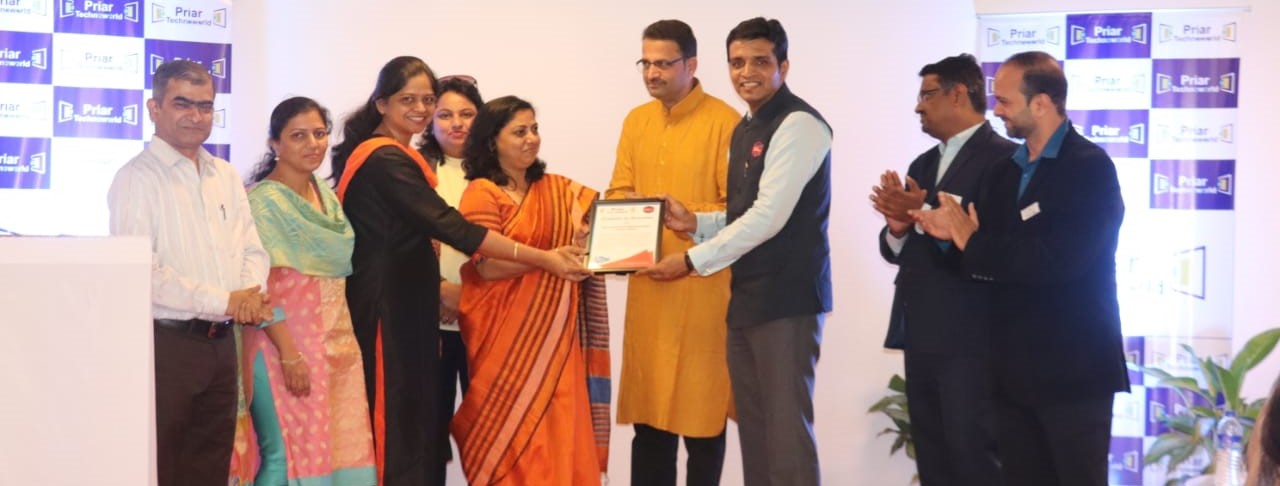Our Vision
"To develop computer engineering graduates with engineering and managerial skills to acquire high end positions that are globally recognized."
Our Mission
"To impart computer engineering knowledge and to provide exposure to the latest technologies so that, students can solve various engineering problems and possesses social, ethical responsibilities and have the attitude of lifelong learning so as to bring about competent professionals."
About Department
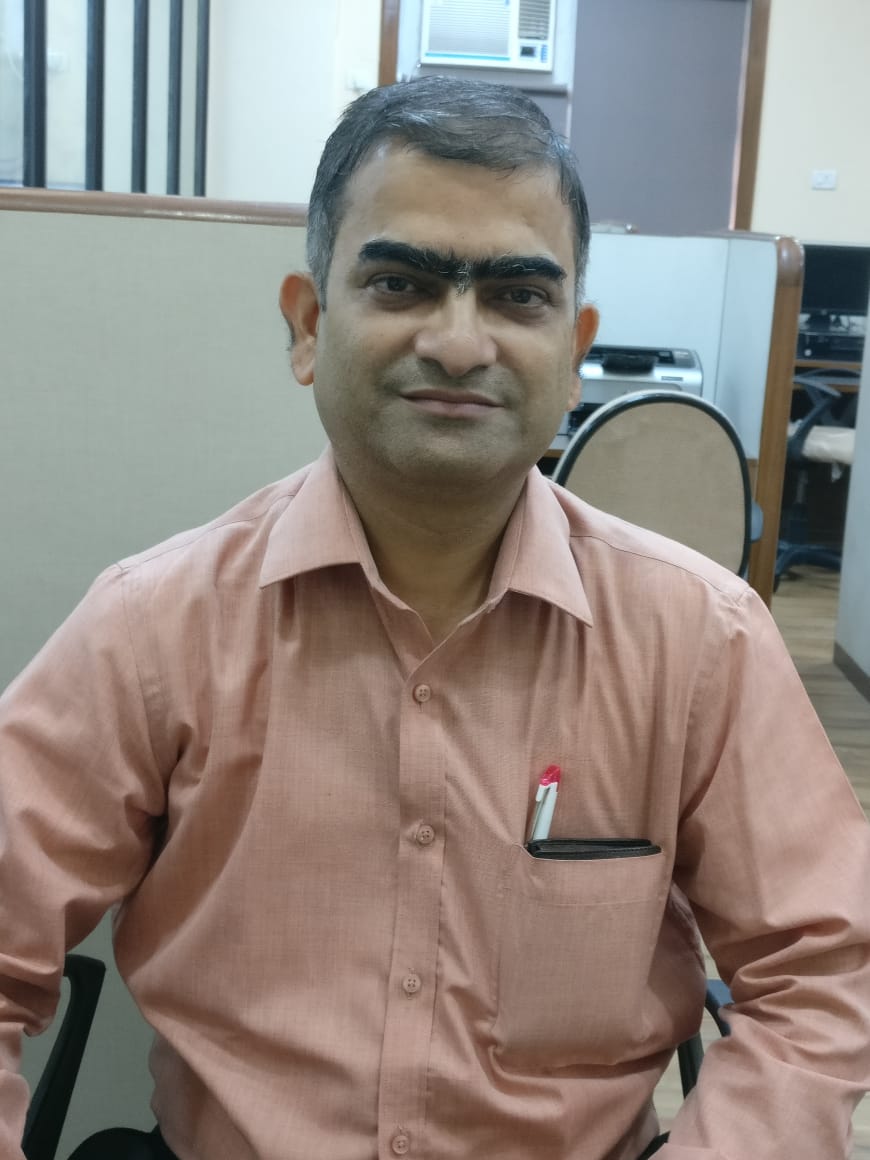
Prof. Uday K. Bhave
Head of Department M.E.(Computer) & B.E.(Electronics) Teaching Experience: 24 Years Industrial Experience: 6.5 Years Department of Computer Engineering of Shah and Anchor Kutchhi Engineering College is one of the oldest and vibrant department, established in the year 1996 with initial intake of 40. Over the years, the department has progressed continuously and currently offering 180 seats for UG and 9 seats for PG programs. Our goal is to empower our students in the field of Computer Science and Engineering through its highly motivated, qualified and experienced faculties and sophisticated laboratories.
Students are given proper exposure to technical skills as well as soft-skills to face the challenges in the industry through technical workshops organised by professional bodies, guest lectures, seminars by industry experts, departmental collaboration etc. Apart from this, department encourages students to participate in different coding competitions, national and international hackathons, spoken tutorials, in-house product development with faculty members, and certification courses like NPTEL, STAR and Red Hat etc.
Students are also given ample opportunities of internships and research activities like technical report writing, publishing research papers and filing copyrights and patents throughout their bachelor program.
Program Intake
Program Offered |
Current Sanctioned Intake |
Year of Establishment |
Computer Engineering Program have been awarded re-accreditation by National Board of Accreditation (NBA) from w.e.f. 1st July 2022 for 3 Years. |
B.E. |
180 |
1996 |
|
M.E. |
9 |
2012 |
Highlights
Program Specific Outcome
- Students will be able to design & develop Computer programs and Automated systems to solve the real world problems for the benefit of society.
- Students will be able to work professionally by applying Software Engineering practices, pursue higher studies and build Entrepreneur skills.
Program Educational Objectives
- Graduates will possess the engineering fundamental knowledge and technical skills to build successful career in various domains.
- Graduates will analyze real life problems and build feasible and economically acceptable solutions using latest technologies.
- Graduates will exhibit strong soft skills, teamwork, professional ethics and social responsibilities.






